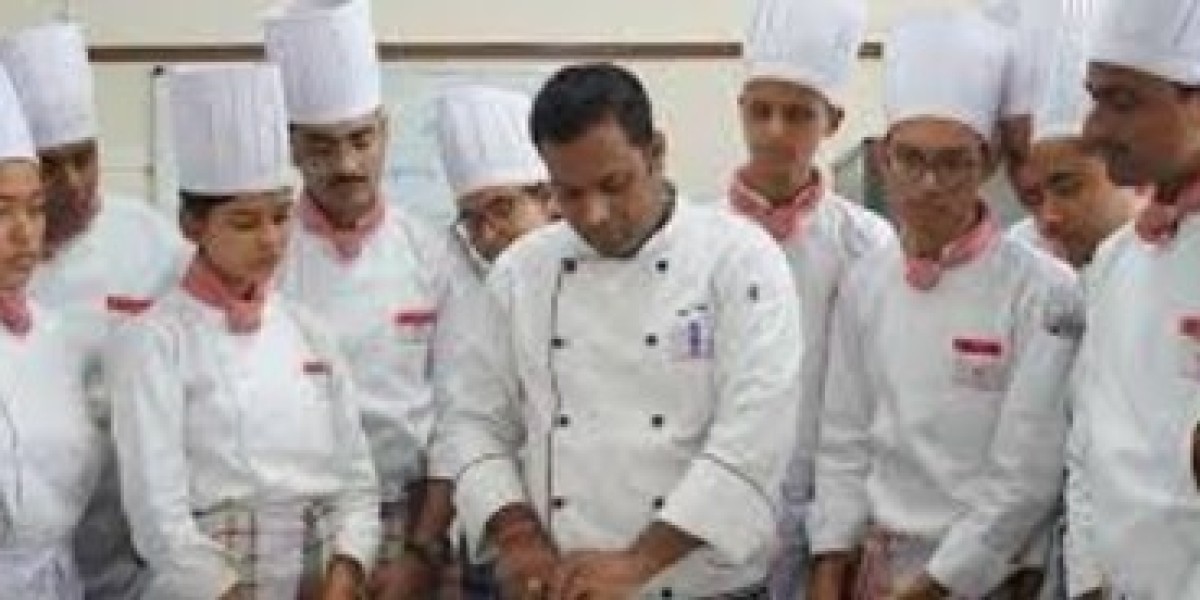In the fast-paced, high-pressure environment of a professional kitchen, effective management is just as important as culinary expertise. Kitchen management training equips individuals with the skills needed to oversee kitchen operations, manage teams, and ensure the smooth running of the foodservice operation. Whether you’re looking to advance in your culinary career or take on a leadership role in the kitchen, kitchen management training is an essential step toward success.
Why Is Kitchen Management Training Important?
Kitchen management training provides a comprehensive skill set that not only covers cooking techniques but also focuses on managing the business side of kitchen operations. Here’s why it’s so important:
- Optimizing Efficiency: Kitchen management training teaches how to streamline operations and ensure that each task, from food prep to cooking and plating, is done efficiently. This helps reduce downtime, increase productivity, and ultimately serve customers faster.
- Ensuring Food Safety: One of the most critical aspects of kitchen management is maintaining food safety and hygiene standards. Proper training helps kitchen managers understand food safety regulations, prevent cross-contamination, and ensure that food handling meets industry standards.
- Budgeting and Cost Control: Managing a kitchen isn’t just about cooking; it’s about keeping the operation profitable. Training in budgeting, purchasing, and inventory control allows managers to minimize food waste, keep track of stock, and ensure that the kitchen operates within budget constraints.
- Leadership Skills: As a kitchen manager, you’ll be responsible for leading a team. Effective kitchen management training enhances your leadership and communication skills, helping you motivate staff, resolve conflicts, and create a positive work environment.
What Will You Learn in Kitchen Management Training?
A well-structured kitchen management training program covers both practical and theoretical aspects of kitchen operations. Here’s an overview of the key topics you can expect to learn:
1. Kitchen Operations Management
- Learn how to organize and optimize kitchen workflows, from food preparation to serving.
- Understand the importance of mise en place (everything in its place) and how it impacts efficiency.
2. Food Safety and Hygiene
- Get trained in food safety regulations, proper food handling, storage techniques, and cleaning protocols.
- Understand how to minimize risks associated with foodborne illnesses and allergens.
3. Menu Planning and Recipe Development
- Learn how to design menus that appeal to customers while being cost-effective.
- Study portion control, cost analysis, and how to balance creativity with profitability.
4. Inventory Management
- Master the art of keeping track of ingredients, supplies, and equipment.
- Learn about stock rotation, waste reduction, and managing supplier relationships.
5. Budgeting and Cost Control
- Gain knowledge in pricing menu items, managing food costs, and controlling expenses.
- Learn how to analyze profit margins and make data-driven decisions to ensure the kitchen’s financial success.
6. Leadership and Staff Management
- Develop leadership qualities such as delegation, conflict resolution, and team building.
- Understand how to schedule shifts, train new staff, and maintain morale in a high-pressure environment.
7. Technology in the Kitchen
- Learn how modern technology is transforming kitchen management, including inventory management systems, order tracking, and kitchen display systems.
- Understand the role of tech tools in streamlining operations and improving service quality.
Types of Kitchen Management Training
Depending on your career goals and schedule, there are several types of kitchen management training available:
1. Certificate Programs
- These are entry-level programs designed to teach the basics of kitchen operations and management. Certificate programs are ideal for individuals who are new to the industry or those looking to build a solid foundation in kitchen management.
2. Diploma Programs
- Diploma programs offer a more comprehensive curriculum and often include practical placements in professional kitchens. These programs are ideal for those looking to pursue managerial roles or run their own food business.
3. Short Courses and Workshops
- For individuals who need specific skills or want to focus on certain aspects of kitchen management, short courses and workshops are available. Topics may include food safety, budgeting, menu design, or staff management.
4. Online Training
- Online kitchen management training offers flexibility for those with busy schedules. These programs typically include video lessons, quizzes, and assignments that allow students to learn at their own pace.
Where Can You Take Kitchen Management Training?
Kitchen management courses and training programs are available at several institutions, including:
- Culinary Institutes: Many culinary schools offer specialized courses in kitchen management as part of their culinary programs.
- TAFE and Vocational Training Centers: In countries like Australia, TAFE institutions offer accredited kitchen management courses, providing practical and theoretical knowledge.
- Online Learning Platforms: Numerous online platforms, such as Coursera, Udemy, and edX, offer kitchen management training that can be taken from anywhere in the world.
- Private Training Providers: There are specialized institutions and training centers dedicated to hospitality and culinary management, which offer tailored programs for aspiring kitchen managers.
Career Opportunities After Kitchen Management Training
After completing a kitchen management course, there are numerous career paths you can pursue in the foodservice industry:
- Kitchen Manager: Oversee all kitchen operations, manage staff, and ensure that food is prepared and served to the highest standards.
- Head Chef: Lead the culinary team, design menus, and maintain the kitchen’s efficiency.
- Catering Manager: Plan and execute catering events, including menu planning, staff coordination, and logistics.
- Restaurant Operations Manager: Manage both the kitchen and front-of-house operations to ensure that the restaurant runs smoothly.
- Food and Beverage Manager: Oversee the food and beverage operations, including managing staff, ordering supplies, and ensuring customer satisfaction.
Conclusion
Kitchen management training is a vital step toward developing the skills needed to run a successful kitchen. It provides a strong foundation in leadership, operations, budgeting, and culinary techniques—essential elements for anyone aiming to thrive in the competitive culinary world. Whether you're just starting your career or looking to advance to a managerial position, investing in quality kitchen management training will help you stand out in the industry and achieve long-term career success.
With the right training, you’ll be equipped to lead a team, manage operations efficiently, and drive success in any culinary environment.








